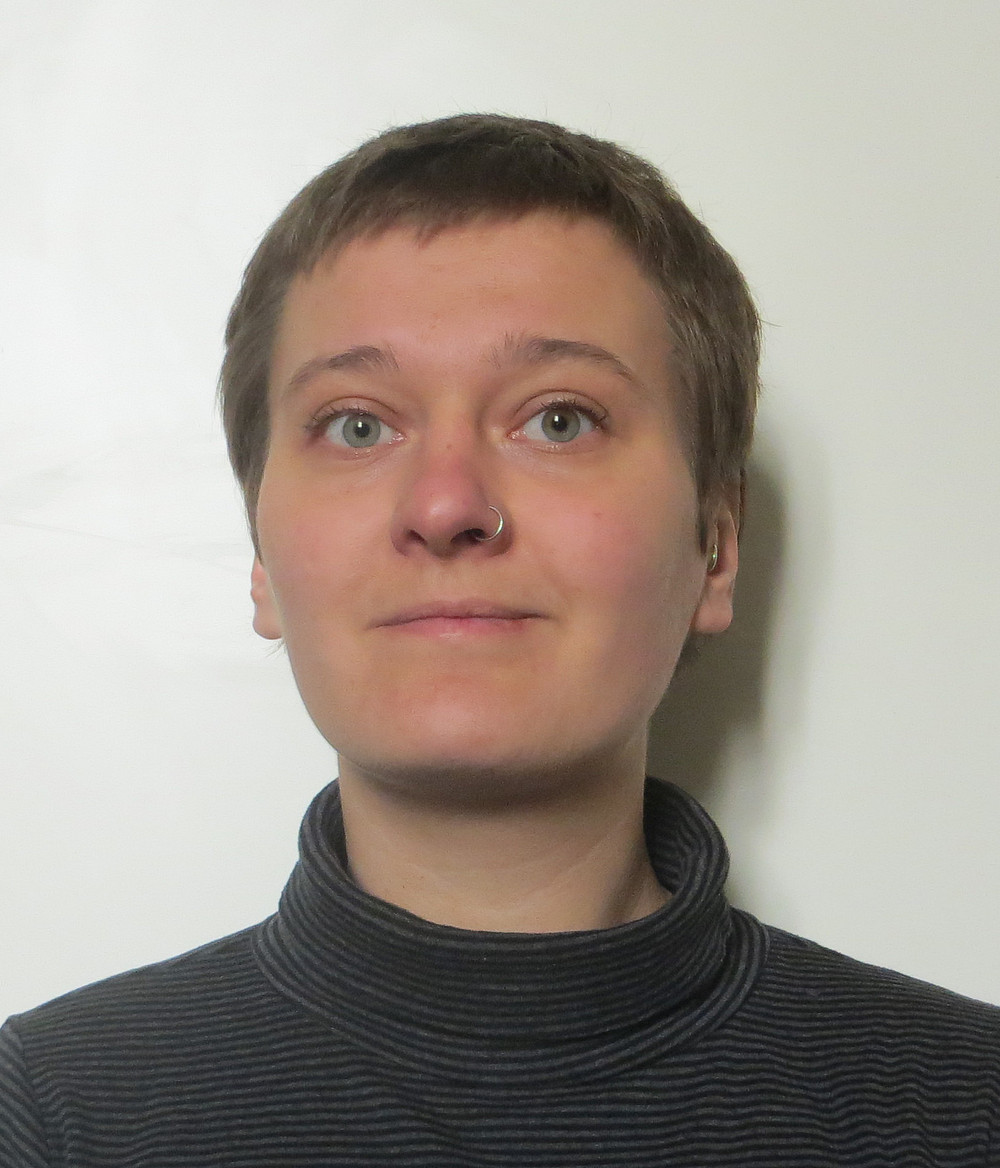Southeast European History and Anthropology
Commemorative Event in the Austrian Parliament
On 8 July 2025, an impressive discussion entitled "Srebrenica 1995-2025: Remembrance, Responsibility, Future" took place on the 30th anniversary of the Srebrenica genocide.
Heike Karge (SEEHA) took part in the panel discussion together with Selma Jahić, survivor and contemporary witness, Dr Valentin Inzko, former ambassador and former High Representative for Bosnia and Herzegovina.
The event was moderated by Olivera Stajić, journalist at Der Standard.
An evening of remembrance, reflection - and the question of how remembrance can create responsibility for the future.
Head of the Section
Univ.-Prof. Dr. Heike Karge
Heike Karge is a Professor of Southeast European History and Anthropology at the Department of History and has been the head of the section Southeastern European History and Anthropology (SEEHA) since 2023.
Curriculum Vitae
Heike Karge first studied Russian in Leipzig and Kaluga, before pursuing degrees in history, Eastern and Southeastern European studies, and sociology in Leipzig, Zagreb, and Belgrade.
She completed her doctoral studies at the European University Institute in Florence with the dissertation Steinerne Erinnerung – versteinerte Erinnerung? Kriegsgedenken im sozialistischen Jugoslawien“ (Wiesbaden: Harrassowitz, 2010; Serbian translation: Sećanje u kamenu – okamjeno sećanje?, Belgrade: Biblioteka XX Vek, 2014).
In 2018, she completed her habilitation at the University of Regensburg, where she worked as an Academic Councillor from 2008 to 2023. Her habilitation focused on the cultural history of psychiatry in Southeast Europe and was published as Der Charme der Schizophrenie. Psychiatry, War and Society in the Serbo-Croatian Region (Berlin: De Gruyter, 2021).


Mag. Dr.phil. Christian Promitzer
Part-time Assistant Professor at the Department of History / Southeast European History and Anthropology.
Curriculum Vitae
Christian Promitzer obtained his doctoral degree in History from the University of Graz in 1997 and has been affiliated with the department ever since. He has contributed to several funded research projects in the field of Southeast European history.
His main research interests include the history of the Austrian–Slovenian (formerly Yugoslav) border since 1918, the history of epidemics and their containment in Southeastern Europe in the 19th and early 20th centuries, and Central European perceptions of the Balkans — particularly as reflected in travel literature.
Dr.phil. Mag. Christian Promitzer
+43 316 380 - 8106
4369917712776
Institut für Geschichte
Zeit und Ort nach Vereinbarung
Dr Siegfried Gruber
Siegfried Gruber is a research associate at the Department of History/Southeast European History and Anthropology.
Curriculum Vitae
Siegfried Gruber began his studies in History and Ethnology at Karl-Franzens-University in 1988 and graduated in 1995. He completed his doctoral studies in 2004. Since 1993, he has worked as a third-party funded research associate at the Institute of History, contributing to various research projects.
In 2008, he worked at the Max Planck Institute for Ethnological Research in Halle (Saale), and from 2009 to 2014 at the Max Planck Institute for Demographic Research in Rostock, where he helped develop the research database Mosaic (www.censusmosaic.org).


Priv.-Doz. Mag. Dr.phil. Dominik Gutmeyr-Schnur
University Assistant at the Department of History / Southeast European History and Anthropology.
He is the project manager of the EU-funded H2020 RISE project "Knowledge Exchange and Academic Cultures in the Humanities: Europe and the Black Sea Region."
Curriculum Vitae
Dominik Gutmeyr-Schnur studied History and Slavic Studies (Bosnian/Croatian/Serbian and Russian) at the universities of Graz, Belgrade, and Pula. In 2016, he earned his doctoral degree in History from the University of Graz with the dissertation Borderlands Orientalism or How the Savage Lost His Nobility: The Russian Perception of the Caucasus between 1817–1878, which was awarded the Josef Krainer Research Prize and published in 2017.
He has been working at the Department of History / Southeast European History and Anthropology since 2012.
Dr.phil. Hanna Stein, MA MA
Hanna Stein is a post-doctoral researcher at the Department of History and a fellow of the Austrian Academy of Sciences (post-doc track, March 2025-July 2025).
Curriculum Vitae
Hanna Stein studied European Studies and Cultural Studies (BA, TU Chemnitz), History of Southeastern Europe (MA, University of Graz and Zagreb) and Interdisciplinary Gender Studies (MA, University of Graz).
In 2024, she completed her dissertation funded by the Austrian Academy of Sciences. In her research on organized amateur film practices and amateur film productions of the 1960s and 1970s in Yugoslavia, Stein shows from an everyday historical perspective how non-professional filmmakers addressed, appropriated and visually negotiated political, social and cultural aspects in a time of rapid change. Her current research focuses on the environmental history of waste in Yugoslavia, which she combines with creative projects.


Ao.Univ.-Prof.i.R. Dr.h.c.mult. Dr.phil. Harald Heppner
Harald Heppner has been affiliated with the Department of History since March 1, 1971. He completed his doctoral studies in 1975 and received his habilitation in Southeast European History in 1983. In 1997, he was appointed Associate Professor. He undertook several research stays abroad, including in Bucharest (1978, 1986), Moscow (1980), and Paris (1992).
His research focuses on several key areas:
- Austrian–Southeast European relations (16th–20th centuries)
- Structural phenomena in the history of Southeast Europe
- The role of the 18th century in shaping the region
- The history of the First World War
(Kopie 16)
Ao.Univ.-Prof.i.R. Dr.phil. Dr.h.c.mult. Harald Heppner
+43 316 380 - 2361
Institut für Geschichte
nach Vereinbarung (per E-Mail oder Telefon)
BA. MA. MA. Christina Sterniša
Christina Sterniša is a University Assistant at the Department of History / Southeast European History and Anthropology.
Her dissertation research is on the topic ‘The Solidarity / The City / The Heroines. Practices of Remembering the Greek Resistance.’
Christina Sterniša completed a master's degree in European Ethnology and Cultural Anthropology at the University of Graz, as well as the Joint Master Degree Southeast European Studies in Graz and Belgrade. During her master's, she worked as a student research assistant at the Institute for Cultural Anthropology/European Ethnology and as a project assistant at the History Institute/Center for Southeast European Studies in Graz. She is part of the international PhD programme Transformations in European Societies1 and the editorial team of kuckuck - notizen zur alltagskultur.


MA. MA. Zsófia Turóczy
Zsófia Turóczy has been working as a University Assistant (postdoc) at the Department of History / Southeast European History and Anthropology since early November 2023.
Curriculum Vitae
Zsófia Turóczy studied German studies, Hungarian literature and linguistics, as well as journalism in Budapest, followed by Southeast European studies in Jena. She is currently completing her doctoral dissertation on "Freemason Networks in Southeast Europe" at the Chair for Comparative Cultural and Social History at the University of Leipzig. Since March 2023, she has also been the interim spokesperson of the Young Southeast Europe Association . In this role, she represents the interests of the young members within the SOG and organizes networking for young emerging scholars and Southeast Europe experts.
Dr.phil. MA. Elife Krasniqi
Elife (Eli) Krasniqi is an anthropologist and writer. Krasniqi studied Sociology (BA, University of Prishtina), Sociology (MA, The New School for Social Research, New York), and Southeast European History and Anthropology (PhD, University of Graz). Her academic interests include visual history and anthropology, feminist and memory cultures, as well as postcolonial theory, with a special focus on Southeast Europe.


Evamaria Schafzahl (Secretary)
has been working at the University of Graz since 1985 and at the Department of History / Southeast European History and Anthropology since 1990.
Fachoberinspektorin Evamaria Schafzahl
+43 316 380 - 2374
Institut für Geschichte
Öffnungszeiten Sekretariat: Montag bis Mittwoch: 9.00-16.00 Uhr, Donnerstag: 9.00-12.00 Uhr.
BA. MA. Besian Kutleshi
Besian Kutleshi is a doctoral candidate at the Department of History. From 2022 to 2023, he worked as an intern at Department of History / Southeast European History and Anthropology (SEEHA), from 2023 to 2024 as a student assistant in research and teaching, and since 2025 as a project assistant.

Orders and Contact
You can place orders either by emailing suedost.bibliothek@uni-graz.at or in person during our opening hours.
Opening hours of our library until January 30, 2026:
Monday, Tuesday, Thursday, and Friday: 8:00 a.m. to 12:00 p.m.
The collection will be unavailable from February 1 to February 28, 2026. Required books must be ordered by January 29, 2026. From March 11, our library collection will be available in the History Department (Heinrichstraße 26). Please use the link below.
ub.uni-graz.at/de/bibliotheken-sammlungen/bibliotheken/fachbibliothek-geschichte/
The University of Graz is the only institution in Austria that has explicitly specialised in the history and anthropology of Southeast Europe in research and teaching.
This specialisation is particularly important for two reasons:
1. Geographical Proximity and Historical Ties
Due to its location, the University of Graz has always played an important role in relations with south-eastern Europe. This connection was also a decisive factor in the founding of the Chair of Southeast European History in 1970 - in addition to the Institute of Slavic Studies, which has a long Balkanological tradition.
Current Research Projects
Networks of Photographic Practises in the Transimperial Caucasus
Creative and Pragmatic Practices and Representations of Everyday Life in Yugoslav Ciné Club Productions of the 1960s and 1970s Funding programme
1970 – Establishment of the “Chair of Southeast European History” at the Historical Institute of the University of Graz as the successor to the Chair of Byzantine Philology and Intellectual History. Teaching begins in the winter semester.
1975 – With the University Organization Act, the History Institute becomes the “Department of History,” and the chair becomes the “Section for Southeast European History and Anthropology.”
1970–1986 – The first head of the section is Ferdinand Hauptmann, formerly professor of general modern history at the University of Sarajevo. He retires in 1986.
1988 – Horst Haselsteiner takes over as head of the section. He was previously an assistant at the Institute for East and Southeast European Studies at the University of Vienna.
1993 – Haselsteiner is appointed to the University of Vienna as the successor to Richard Georg Plaschka.
1996 – Karl Kaser takes over as professor and head of the section. He was previously a contract assistant in the section and had a decisive influence on its content in the following years.
Location: Meerscheinschlössl
The section is located in the north wing of the historic Meerscheinschlössl, a Baroque building with an eventful history. Probably built in the 16th century as the residence of the papal nuncio for Inner Austria, it was given its current name by a café owner in the 19th century. At that time, people danced, played games, and drank coffee here—the latter of which continues to this day.
Despite the idyllic ambience, intensive research, work, and discussion take place in the approximately 500 square meters of space. The section focuses on internationalization, scientific networking, and active communication, both regionally and globally.

Karl Kaser (1954-2022)
Karl Kaser was Professor of Southeast European History and Anthropology at the University of Graz from 1996. He had a decisive influence on the section for many years and provided important impulses in research and teaching.
His academic focus was on historical anthropology, particularly in the areas of family and kinship history, gender systems and visual culture in Southeast Europe. With his interdisciplinary approaches and numerous publications, Kaser is one of the most important historians of Southeast Europe in the German-speaking world.

Whether BA or MA - here you'll find information on courses, supervision, theses and everything to do with studying.



